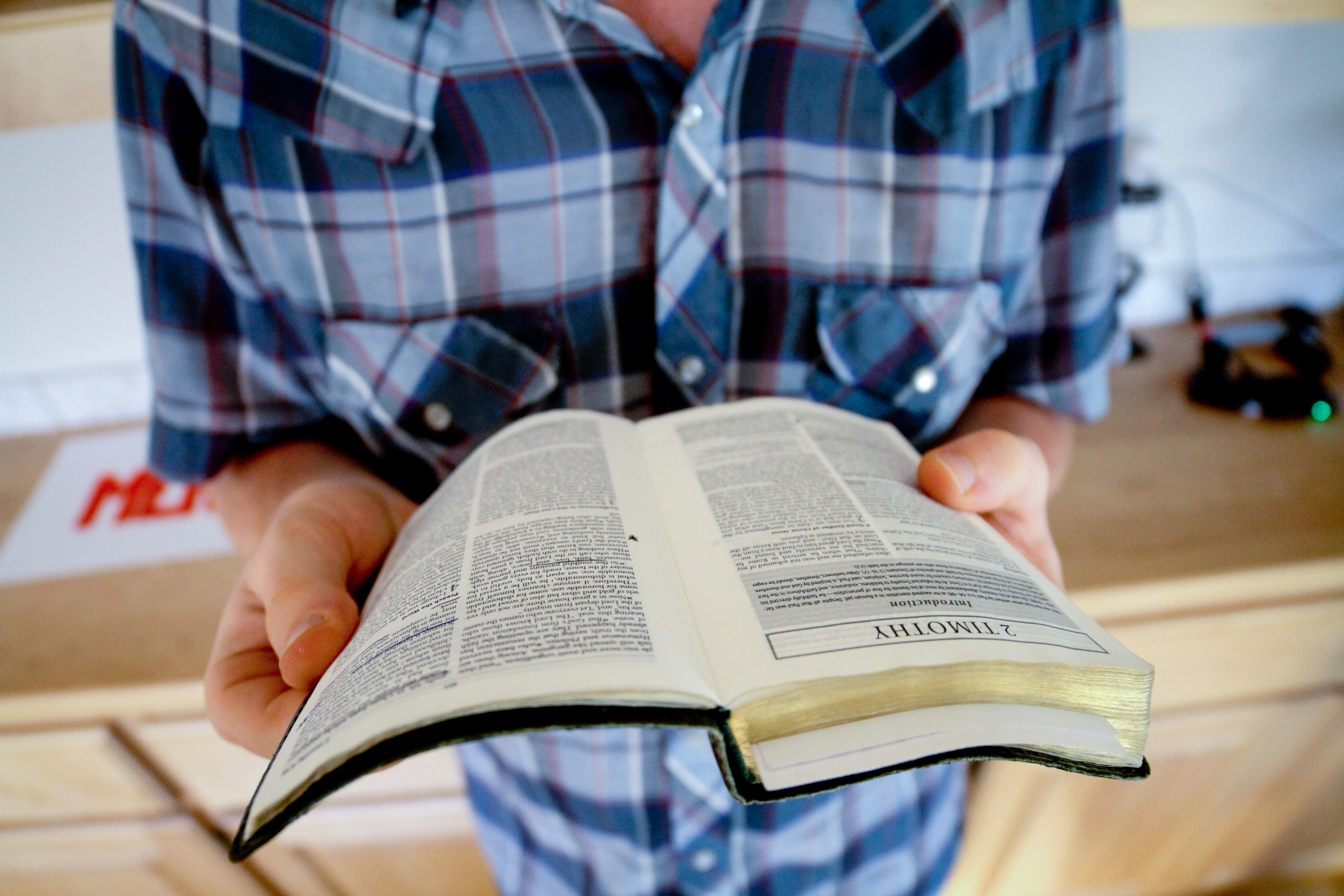When we think of unity and working together as one, we often default to the illustration of the body (see 1 Corinthians 12:12-31). But there’s an interesting Old Testament picture I’d like to draw attention to. It illustrates how each person was given their individual assignment, yet everyone worked together as one, to accomplish something that housed the presence of Almighty God.
Of the 12 tribes of Israel, God chose the tribe of Levi to be set apart for Himself (Numbers 3:11-13). This tribe was awarded the sole privilege of working in and around the tabernacle (and later, the temple), and of being those who were closest to the presence of God. But with this tremendous privilege comes responsibility, as we shall see.
No random assignments from God
To understand the story, we need to begin with Jacob’s third son, Levi, who was ancestor of the tribe of Levi (or the Levites). Levi had three sons: Gershon, Kohath and Merari. Numbers chapters 3 and 4 tells the story of God calling these three Levitical families, and assigning them all different areas of responsibility. These responsibilities particularly related to carrying the various items of tabernacle furniture whenever the Israelites moved camp under Moses.
What’s interesting is that responsibilities were not randomly given. Nor could anyone simply decide what they would carry based on their own preference. They were assigned. God was very specific as to what each person had to carry. And each person was also responsible for taking care of the particular item or items that were assigned to them.
…and you shall assign to each man by name the items he must carry.
Numbers 4:32a (NKJV)
They are to take care of all the furnishings of the tent of meeting, fulfilling the obligations of the Israelites by doing the work of the tabernacle.
Numbers 3:8 (NIV)
So let’s look a bit closer at exactly what these assignments entailed. We will find that, like the illustration of the body, everyone had to work together. If they didn’t, the tabernacle which housed the presence of God would not be set up or able to function.
Three families, one purpose
Every aspect of the tabernacle was important, even down to the smallest hook and clasp that held it together – so much so that Moses spent 40 days and nights on Mt Sinai receiving God’s detailed blueprint for how it was to be constructed and how it was to function. When they moved camp, each Levitical family were responsible for carrying certain types of items.
Merari
The Merarites were responsible for carrying the frames, crossbars, posts and bases of the tabernacle. In other words, all the main structural items (Numbers 3:33-37, 4:29-33; see also Exodus 36:20-34). There would be no structure to the tabernacle without those assigned to ensure these things were well set up and maintained. This was the responsibility assigned to the family of Merari.
Today, we need those who ensure there is strength and effectiveness in the body of Christ. We need foundational teaching, correct theology, established boundaries and strong connections that tie everything together. These are the responsibilities of those called to be “Merarites” in the church today.
Gershon
The Gershonites were responsible for carrying the curtains, ropes and related equipment (Numbers 3:21-26, 4:24-28; see also Exodus 36:8-19). Remember, the tabernacle was a tent made of goat’s hair with inner curtains of fine linen. The curtains were held together with loops of blue material and clasps of gold (Exodus 36:10-13). There was also a wall of curtains all the way around the tabernacle. So there were a lot of curtains and ropes involved! These were the softer items that wrapped around the structural framework and created smaller spaces.
Today we need those who wrap around the overall framework, bringing individual personal care and concern. And we need those who pay attention to the smallest loops and clasps – to ensure everyone is connected and cared for. These are the responsibilities of those called to be “Gershonites” in the church today.
Kohath
The Kohathites were responsible for taking care of the most holy things inside the tabernacle – in the Holy Place and the Most Holy Place (Numbers 3:27-32, 4:4-20). Their sole focus was on the items used to minister to God. The plates where the Bread of Presence was continuously before the Lord (Exodus 25:23-30). The jugs for the drink offering that was poured out before the Lord. The smallest wick-trimmers and trays for the golden lampstand (Exodus 25:37-40). And the large items like the Ark of the Covenant. They had to make sure these were kept in good order and none of them went missing or were not available when needed.
Today, we all need to know how to steward the things of God well. Worship, prayer, devotion to God and putting Him first are not things that any of us can neglect. The responsibilities of the Kohathites actually fall on each one of us.
God’s kind of unity
Here’s a few of my observations. You might have others.
- Each of the three areas of responsibility were just as important as the others. And what each person was assigned to carry was also just as important as all the other assignments. The tabernacle could not be fully completed if someone with their piece, was not there.
- No one branch of the family had responsibility for everything associated with the tabernacle. Today, no one person is called to do everything. We need to recognise how God has gifted us, and how God has gifted others, and allow every person to carry the responsibility God has assigned to them.
- There is no hierarchy around the tabernacle. There is only delegation responsibility. And there is no hierarchy in the body of Christ. It is about call, function and responsibility that has been given by Jesus (Ephesians 4:11-13).
- No matter where we find ourselves – in our home, at work, at church, or with friends – we have all been called and set apart by God. It doesn’t matter if we feel like we have been given hardly any responsibility by God. The thing is that it’s not about the bigness of what you have been given to carry. It’s about that you steward whatever you have been given well, because every person has a part to play.
- And no matter whether we function primarily as those who bring framework and teaching or have more of a focus on personal care and practical help, let’s not forget to steward the previous things of God well. After all, the Kohathite call held the same weight of responsibility as that of the Gershonites and Merarites when it came to ensuring the tabernacle was fully functioning.
We have an amazing corporate call, and a tremendous individual responsibility. Together, we are the temple of the Holy Spirit, the fully functioning body of Christ, bringing His presence and His Kingdom, wherever we go.





